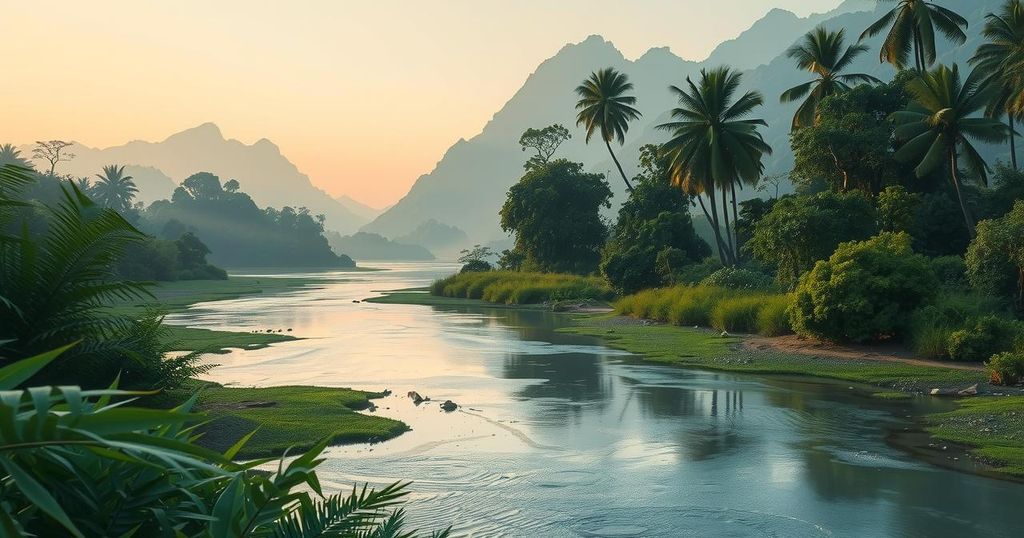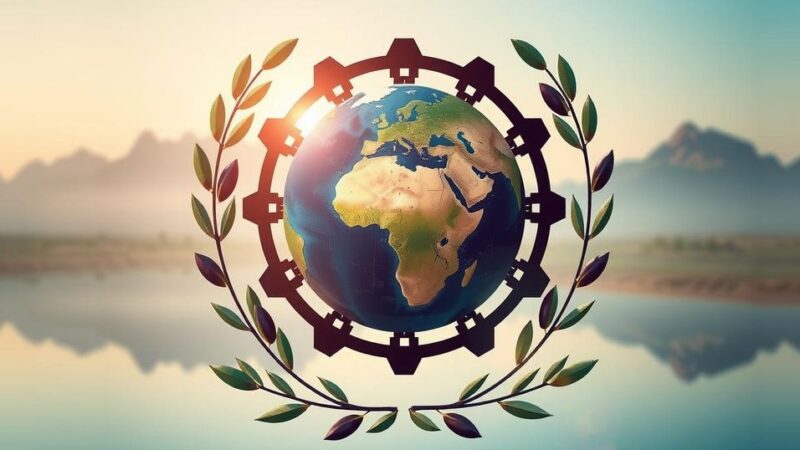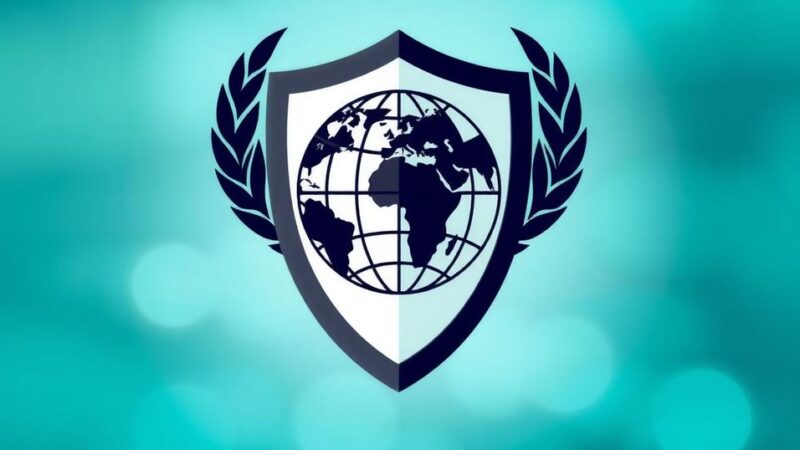Three South African peacekeepers were killed in eastern DR Congo amidst escalating fighting between government forces and M23 rebels. Despite international pressure to cease hostilities, clashes continue near Goma, raising significant humanitarian concerns. Diplomatic efforts have failed to yield results as violence threatens to deepen the ongoing crisis in the region.
Three South African peacekeepers lost their lives in the ongoing conflict in eastern Democratic Republic of Congo (DRC), where hostilities intensified recently between the Congolese army and Rwandan-supported M23 fighters. This tragic event was confirmed by a political party statement, highlighting the dangers faced by peacekeeping forces in the region amid escalating violence.
Despite international calls for cessation of hostilities, the M23 has advanced toward Goma, a critical urban center in North Kivu province, which is home to over one million residents. Following unsuccessful peace talks led by Angola, fighting has been reported just a few kilometers from Goma, heightening concerns about civilian safety and humanitarian crises.
Visible signs of conflict include a burned UN armored vehicle along crucial routes between Goma and Sake, where heavy clashes have occurred. Nonetheless, daily life in Goma continues, with businesses operational despite distant artillery blasts, illustrating the precarious balance of normalcy amidst danger.
The European Union has urged the M23 to withdraw immediately, condemning Rwanda’s military involvement as a breach of international law. EU foreign policy chief Kaja Kallas emphasized the humanitarian and security consequences of the threat posed by M23, demanding an end to its campaign against Goma.
Angolan President Joao Lourenco has denounced M23’s actions, positioning himself as a mediator in the crisis, which he stated could severely impact regional security. In light of the escalating threat, the United Nations has begun evacuating its non-essential personnel from Goma, advising international citizens to leave the area swiftly due to heightened risks.
The UN’s mission in the DRC, MONUSCO, confirmed its engagement in combat, providing artillery fire against M23 positions. Approximately 15,000 peacekeepers are currently deployed in the DRC, where the South African Democratic Alliance reported that three of their peacekeepers were killed in recent skirmishes.
An emergency meeting of the UN Security Council is scheduled to address the ongoing crisis, as Secretary-General Antonio Guterres expressed alarm over renewed violence threatening the stability of the region. Additionally, the International Committee of the Red Cross has treated many casualties from the conflict, further highlighting the escalating toll of the violence.
The DRC, experiencing chronic unrest for the past three decades, has been caught in a cycle of violence exacerbated by rivalries with Rwanda. Diplomatic efforts to stabilize the situation have faltered, with recent negotiations between DRC President Felix Tshisekedi and Rwandan President Paul Kagame failing to yield positive results. The costly conflict continues to deepen humanitarian challenges for countless civilians displaced since January.
The Democratic Republic of Congo (DRC) has faced decades of conflict, a situation exacerbated by Rwanda’s alleged military support for various rebel groups, particularly the M23. The mineral-rich eastern region remains volatile and poses significant humanitarian risks, with ongoing hostilities leading to civilian displacement and impactful international responses. Peacekeeping missions, while intended to stabilize the area, have encountered increasing hostilities, impacting their effectiveness and the safety of personnel involved.
The situation in the Democratic Republic of Congo remains dire as violence escalates in eastern regions, jeopardizing both peacekeepers and civilians. The loss of South African soldiers underscores the perilous environment amid ongoing conflict with the M23, supported by Rwanda. International calls for peace need to be heeded to prevent further humanitarian catastrophes and restore stability in a region long plagued by unrest.
Original Source: www.france24.com







